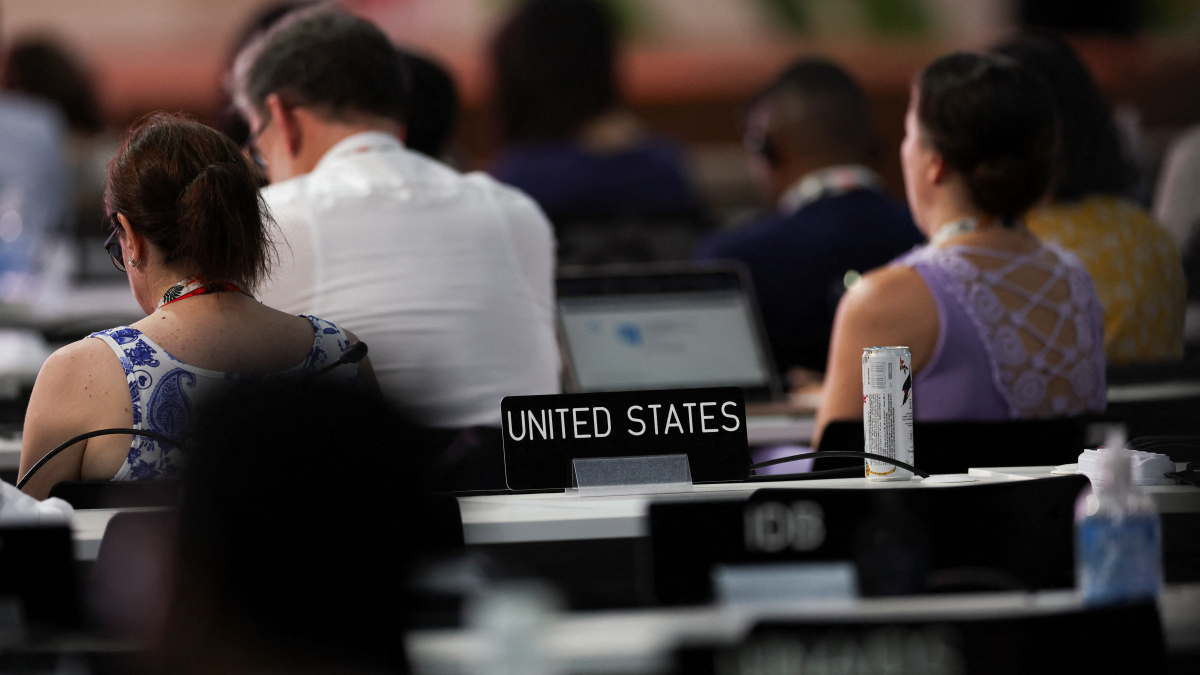Ramadan amid crisis: hunger, displacement and hope in Gaza
For many Palestinians, the holy month of Ramadan is being observed amid hunger, displacement and uncertainty. Families are relying on humanitarian aid...

Government ministers from around the world were preparing for a final few fraught days of talks at the U.N. climate summit as they bid to secure a deal that demonstrates global resolve amid increasing assertiveness from developing nations.
The job will not be easy. Countries are now digging into some of the toughest issues - many of which have been left off the formal agenda to ensure the talks keep moving even if one issue gets hung up.
Brazilian President Luiz Inácio Lula da Silva is also expected to arrive on Wednesday to help rally consensus among parties at the summit in the Amazon city of Belem ahead of Friday's final scheduled session. Developing nations flex more muscle
New dynamics in climate diplomacy have seen China, India and other developing nations flex more muscle this year, while the European Union is hobbled by weakening support back home and the once-dominant United States has skipped out altogether.
Asked if there was any one issue dominating the talks, COP30 President Andre Correa Do Lago replied: "Everything, everything. It's very complicated."
Brazil's top goal for COP30 is to deliver an agreement that reaffirms the 2015 Paris Agreement, while acknowledging its shortcomings by laying out clear plans for future climate action.
The summit's work is "dry, it's complicated, it's anguished, it's tiring - and it's absolutely necessary," said Britain's energy minister, Ed Miliband. Mind the gaps
Over the last week negotiators had a chance to air their differences on three key issues: climate finance, unilateral trade measures, and planned emissions cuts that don't go nearly far enough.
The Paris treaty's central goal, to prevent warming beyond 1.5 degrees Celsius above pre-industrial levels, will be missed.
Current emissions trends have the world warming by at least 2.3 degrees Celsius, which Norway's climate minister said parties agreed would need to be addressed.
"It is a must-have to be able to talk about how we close the gap going forward," the minister, Andreas Bjelland Eriksen, told Reuters.
A bloc of developing countries is also seeking a payment schedule to ensure wealthy countries follow through on promises made at last year's COP29 to annually deliver $300 billion in climate finance by 2035. The United States - absent from COP30 - has reneged on past commitments. Clean tech talks
China's growing role in the UN climate talks follows decades of Beijing representing developing-country interests at the talks while growing its own green technology sector.
"It's not that China set out with a brilliant new strategy; it just happened," said Li Xing, a professor at the Guangdong Institute for International Strategies.
"With the U.S. stepping back — Trump isn't interested in this sector at all — China sees an opening and says, 'We're interested; we're willing to go'," Li told Reuters in Beijing.
Another testy issue has some developing countries grousing about carbon border taxes or tariffs imposed by some countries on Chinese-made green products, given the now-urgent need for the world to speed its clean energy transition.
Iran’s Supreme National Security Council Secretary Ali Larijani said the United States could evaluate its own interests separately from those of Israel in ongoing negotiations between Tehran and Washington.
Cuba’s fuel crisis has turned into a waste crisis, with rubbish piling up on most street corners in Havana as many collection trucks lack enough petrol to operate.
Norway is holding a commanding lead in the medal standings with 12 golds and a total of 26, with Italy having an historic performance on home soil on the ninth day of the Milano-Cortina Winter Olympics on Sunday (15 February).
Iran’s Revolutionary Guards navy held military exercises in the Strait of Hormuz on Monday (16 February), state-linked media reported. The drill took place a day before renewed nuclear negotiations between Tehran and Washington in Geneva.
Iran is pursuing a nuclear agreement with the U.S. that delivers economic benefits for both sides, an Iranian diplomat was reported as saying on Sunday (15 February), days before a second round of talks between Tehran and Washington.
The Kremlin has sought to lower expectations ahead of the latest round of Ukraine peace talks in Geneva, saying no announcements should be expected on Tuesday as negotiations continue behind closed doors.
Spain’s government has instructed prosecutors to investigate social media platforms X, Meta and TikTok over the alleged creation and dissemination of AI-generated child sexual abuse material, Prime Minister Pedro Sánchez announced on Tuesday.
Jesse Jackson, one of the most prominent figures of the modern American civil rights movement and a two-time candidate for the Democratic presidential nomination, has died at the age of 84, his family has announced.
Hundreds of millions of people criss-cross China during Lunar New Year holidays to reunite with families in their hometowns or for sight-seeing in an extended festive period, making it the world's largest annual human migration.
New Mexico has launched what lawmakers describe as the first full investigation into Jeffrey Epstein’s activities at Zorro Ranch, where the late U.S. sex offender Jeffrey Epstein is accused of trafficking and sexually assaulting girls and women.
You can download the AnewZ application from Play Store and the App Store.

What is your opinion on this topic?
Leave the first comment